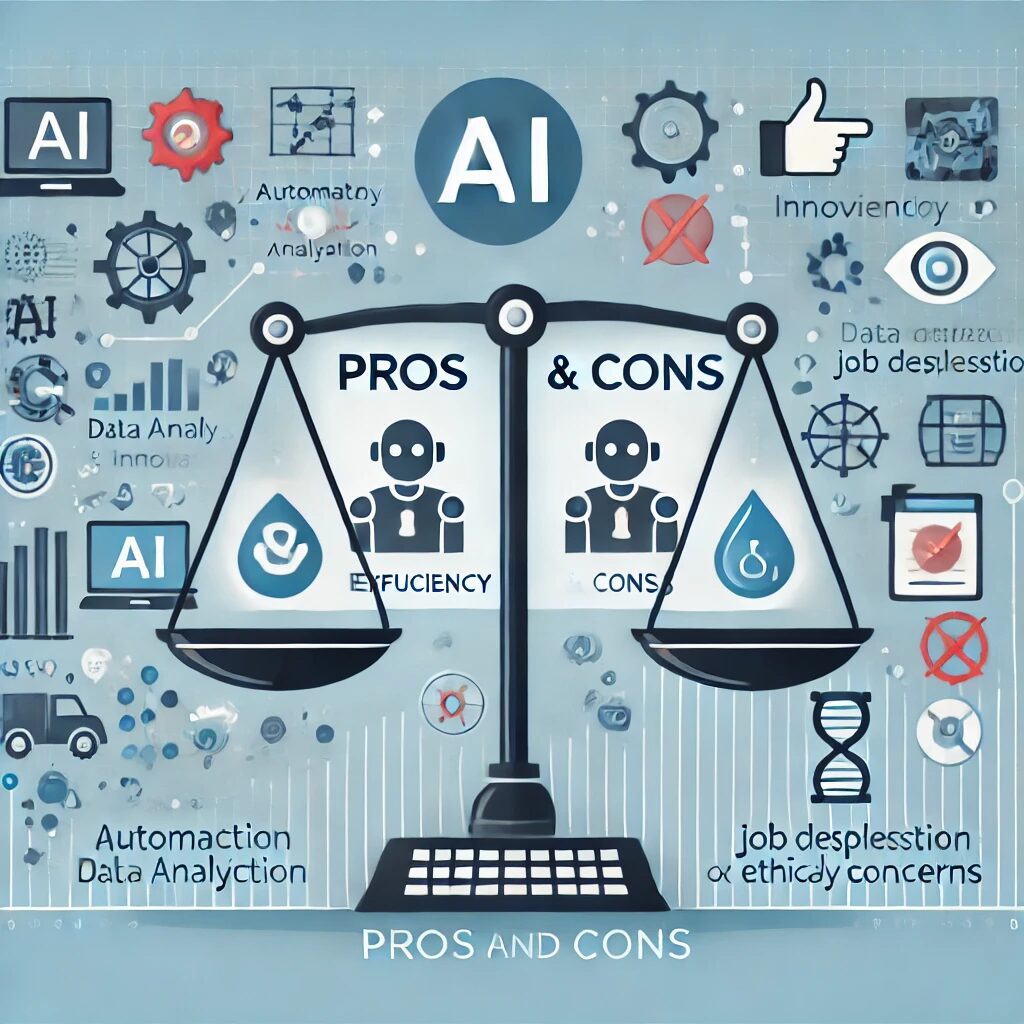Introduction
Artificial Intelligence (AI) tools are revolutionizing various industries by enhancing efficiency and productivity. From automating routine tasks to providing insights through data analysis, AI is becoming an indispensable asset for businesses. This article explores how to leverage AI tools to increase efficiency and discusses the pros and cons of using these tools.
How to Leverage AI Tools for Increased Efficiency
1. Automating Routine Tasks
One of the primary benefits of AI tools is their ability to automate repetitive and mundane tasks. Tools such as robotic process automation (RPA) can handle data entry, scheduling, and other routine activities, freeing up human employees to focus on more complex and creative tasks.
2. Enhancing Data Analysis
AI-powered analytics tools can process vast amounts of data quickly and accurately. These tools can identify patterns, trends, and insights that might be missed by human analysts. Businesses can leverage these insights to make informed decisions, optimize operations, and predict future trends.
3. Improving Customer Service
AI chatbots and virtual assistants can handle customer inquiries, provide support, and even process transactions. These tools are available 24/7, ensuring that customers receive timely assistance. This not only enhances customer satisfaction but also reduces the workload on human customer service representatives.
4. Personalizing Marketing Campaigns
AI tools can analyze customer behavior and preferences to create personalized marketing campaigns. By delivering targeted content and offers, businesses can improve engagement and conversion rates. AI-driven personalization also helps in building stronger customer relationships.
5. Streamlining Recruitment
AI tools can assist in the recruitment process by screening resumes, scheduling interviews, and even assessing candidate suitability through predictive analytics. This speeds up the hiring process and ensures that the best candidates are selected efficiently.
Pros of Using AI Tools
- Increased Efficiency: AI tools can perform tasks faster and with greater accuracy than humans, leading to increased productivity.
- Cost Savings: Automating tasks reduces the need for human labor, which can result in significant cost savings for businesses.
- Data-Driven Decision Making: AI tools provide valuable insights that can help businesses make informed and strategic decisions.
- Enhanced Customer Experience: AI tools can provide quick and efficient customer service, improving overall customer satisfaction.
- Scalability: AI solutions can easily scale to handle increasing amounts of data and tasks without a proportional increase in costs.
Cons of Using AI Tools
- Initial Investment: Implementing AI tools can require a significant upfront investment in technology and training.
- Job Displacement: Automation of tasks may lead to job displacement for workers performing routine tasks.
- Data Privacy Concerns: The use of AI tools involves handling large amounts of data, raising concerns about data privacy and security.
- Dependence on Technology: Over-reliance on AI tools can lead to reduced human oversight and potential issues if the technology fails.
- Bias in AI: AI tools can inherit biases from the data they are trained on, leading to unfair or discriminatory outcomes.
Conclusion
AI tools offer numerous advantages in terms of efficiency, cost savings, and data-driven decision making. However, it is crucial for businesses to carefully consider the potential drawbacks and address them proactively. By leveraging AI tools effectively and ethically, organizations can unlock their full potential and drive sustainable growth.




